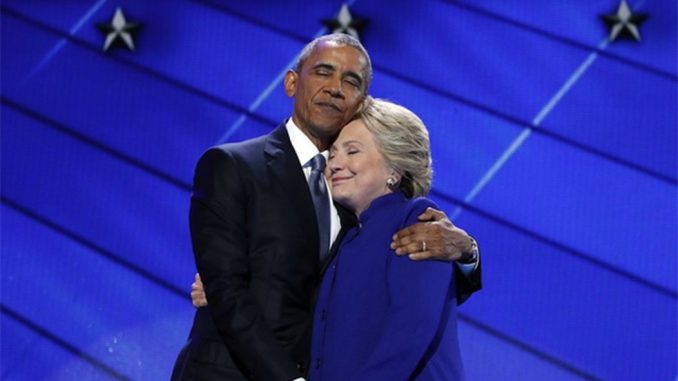
| Published August 4, 2025
For years, the narrative of “Russiagate” dominated American headlines, fueling investigations, media frenzy, and deep political division. It was painted as a scandal of historic proportions—alleging collusion between Donald Trump’s campaign and the Russian government to influence the 2016 election. But now, nearly a decade later, mounting evidence and declassified intelligence are turning the tide. Recent reports and whistleblowers suggest that key players—including top officials in the FBI and the Obama-era intelligence community—knew the allegations lacked substance from the start. As new revelations emerge, the truth is finally catching up with what some critics have called the biggest political deception in modern U.S. history.
📌 Major Claim: Russiagate Was a Political Hit Job
Both RedState and the New York Post argue that Russiagate was not a legitimate national security investigation but a calculated political operation. According to recently declassified documents and insider accounts, the narrative linking Donald Trump to Russian collusion was initiated by the Clinton campaign and amplified by willing actors within the intelligence community. These sources claim that top officials—despite knowing the allegations were unverified—proceeded with investigations and media leaks to damage Trump’s presidency. The FBI, in particular, is accused of knowingly pushing a narrative it could not substantiate, making Russiagate less about national security and more about political warfare.
🔎 Key Evidence Cited
▶ Declassified Intelligence & House Reports
-
Turner’s column references newly declassified documents and intelligence files indicating internal narratives came from Clinton‑aligned groups, supported by subsequent House and intelligence committee releases
-
The House Intel file (via DNI Tulsi Gabbard) reportedly inclines toward Russians not modifying votes and questions the 2017 consensus assessments
▶ Inspector General and Durham Reports
-
Turner’s narrative leans on the 2023 Durham report and the DOJ Inspector General’s review of Crossfire Hurricane, which highlighted serious FISA application errors but found no definitive evidence of political bias.
-
While critics suggest we should have launched no probe, those reports acknowledge the investigation had a legitimate factual basis, despite sloppy execution.
🧭 Contrasting Perspectives & Observations
-
The DOJ’s Inspector General (2019) concluded the FBI acted with proper justification to open the Russia probe and did not find intentional bias at initiation; however, it noted “17 significant inaccuracies” in Carter Page FISA filings
-
Durham’s final report (2023) criticized procedural failures and questioned the FBI’s judgment, but did not recommend charges related to political conspiracy or collusion coordinating by Clinton or Obama

The RussiaGate scandal was thrust upon the country by the FBI and former director James Comey.
 Special counsel John Durham’s investigation brought the flimsy beginnings of the FBI’s Trump-Russia probe to light.
Special counsel John Durham’s investigation brought the flimsy beginnings of the FBI’s Trump-Russia probe to light.
 Implications:
Implications:
-
Erosion of Public Trust
If key government institutions knowingly advanced a false narrative, it severely undermines public confidence in the FBI, DOJ, and intelligence agencies. -
Weaponization of Intelligence
The use of surveillance powers and investigative tools for partisan purposes suggests the intelligence community may have been politicized. -
Media Credibility Crisis
Mainstream media outlets that uncritically promoted the collusion theory face long-term damage to their credibility and claims of journalistic integrity. -
Election Interference from Within
The true interference may not have come from a foreign adversary, but from domestic actors manipulating information to influence an election and its aftermath. -
Lack of Accountability
Despite emerging evidence, few—if any—high-level officials have faced legal consequences, raising concerns about a double standard in justice. -
Dangerous Precedent
Russiagate sets a troubling example: that false narratives, when backed by powerful institutions and echoed by media, can alter the course of American politics.
 Overall Takeaway:
Overall Takeaway:
Nearly a decade after the Russia collusion narrative first surfaced, the emerging evidence paints a starkly different picture—one not of foreign subversion, but of domestic manipulation. What was once framed as a grave national security threat is now increasingly viewed as a political strategy dressed in the language of justice. The fact that key officials reportedly knew the foundation was weak—and moved forward anyway—calls into question the integrity of our most trusted institutions. As the truth continues to surface, it’s not just the legacy of Russiagate that’s on the line, but the credibility of the media, the FBI, and the political class that allowed it to happen. History may ultimately judge Russiagate not as a failed investigation, but as a deliberate deception that reshaped American politics for all the wrong reasons.
SOURCES: REDSTATE – Russiagate Was a Big Lie, and Only Now Is the Truth Catching Up to It
THE NEW YORK POST – The FBI knew RussiaGate was a lie — but hid that truth





Be the first to comment